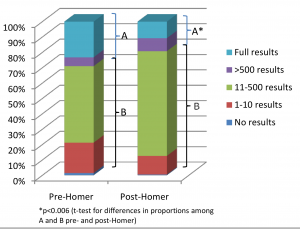Editor’s note: this guest post was contributed by ten leading psychiatric geneticists (see author list at the end of the post) in response to the headline-grabbing claims of a recent paper claiming to have identified eight genetic sub-types of schizophrenia. Similar text has also been posted on PubMed Commons and elsewhere. [DM]
In a study published on September 15, Arnedo et al. asserted that schizophrenia is a heterogeneous group of disorders underpinned by different genetic networks mapping to differing sets of clinical symptoms. As a result of their analyses, Arnedo et al. have made remarkable and perhaps unprecedented claims regarding their capacity to subtype schizophrenia. This paper has received considerable media attention. One claim features in many media reports, that schizophrenia can be delineated into “8 types”. If these claims are replicable and consistent, then the work reported in this paper would constitute an important advance into our knowledge of the etiology of schizophrenia.
Unfortunately, these extraordinary claims are not justified by the data and analyses presented. Their claims are based upon complex (and we believe flawed) analyses that are said to reveal links between clusters of clinical data points and patterns of data generated by looking at millions of genetic data points. Instead of the complexities favored by Arnedo et al., there are far simpler alternative explanations for the patterns they observed. We believe that the authors have not excluded important alternative explanations – if we are correct, then the major conclusions of this paper are invalidated.
Continue reading ‘Eight types of schizophrenia? Not so fast…’
 In PLoS Genetics this week there is a viewpoint article on data sharing in disease genetics. The authors systematically looked at 643 genome-wide association studies published between 2002 and 2010, to see how easily available the results of the studies are now. They found that the availability of full study results has gone down over time, and many groups that do share data have put more restrictions in place on its use. They put this down to fears over the privacy of research subjects, and in particular to the Homer et al study. The Homer et al result is somewhat complicated, but in essence it says that if you have stolen someone’s genotype data, you can use it to figure out if they have participated in any given research study by looking at the full results of the study.
In PLoS Genetics this week there is a viewpoint article on data sharing in disease genetics. The authors systematically looked at 643 genome-wide association studies published between 2002 and 2010, to see how easily available the results of the studies are now. They found that the availability of full study results has gone down over time, and many groups that do share data have put more restrictions in place on its use. They put this down to fears over the privacy of research subjects, and in particular to the Homer et al study. The Homer et al result is somewhat complicated, but in essence it says that if you have stolen someone’s genotype data, you can use it to figure out if they have participated in any given research study by looking at the full results of the study. Genome-wide association studies have been hugely successful in identifying dozens of common genetic risk factors for a large number of common diseases. However, one area that GWAS has not had much success in is the field of psychiatric illness, where finding common risk factors that replicate across studies has been consistently difficult. However, it looks like this is starting to change. The current issue of Nature Genetics has two papers from the Psychiatric GWAS Consortium, detailing some of the largest meta-analyses of schizophrenia and
Genome-wide association studies have been hugely successful in identifying dozens of common genetic risk factors for a large number of common diseases. However, one area that GWAS has not had much success in is the field of psychiatric illness, where finding common risk factors that replicate across studies has been consistently difficult. However, it looks like this is starting to change. The current issue of Nature Genetics has two papers from the Psychiatric GWAS Consortium, detailing some of the largest meta-analyses of schizophrenia and  RSS
RSS Twitter
Twitter
Recent Comments